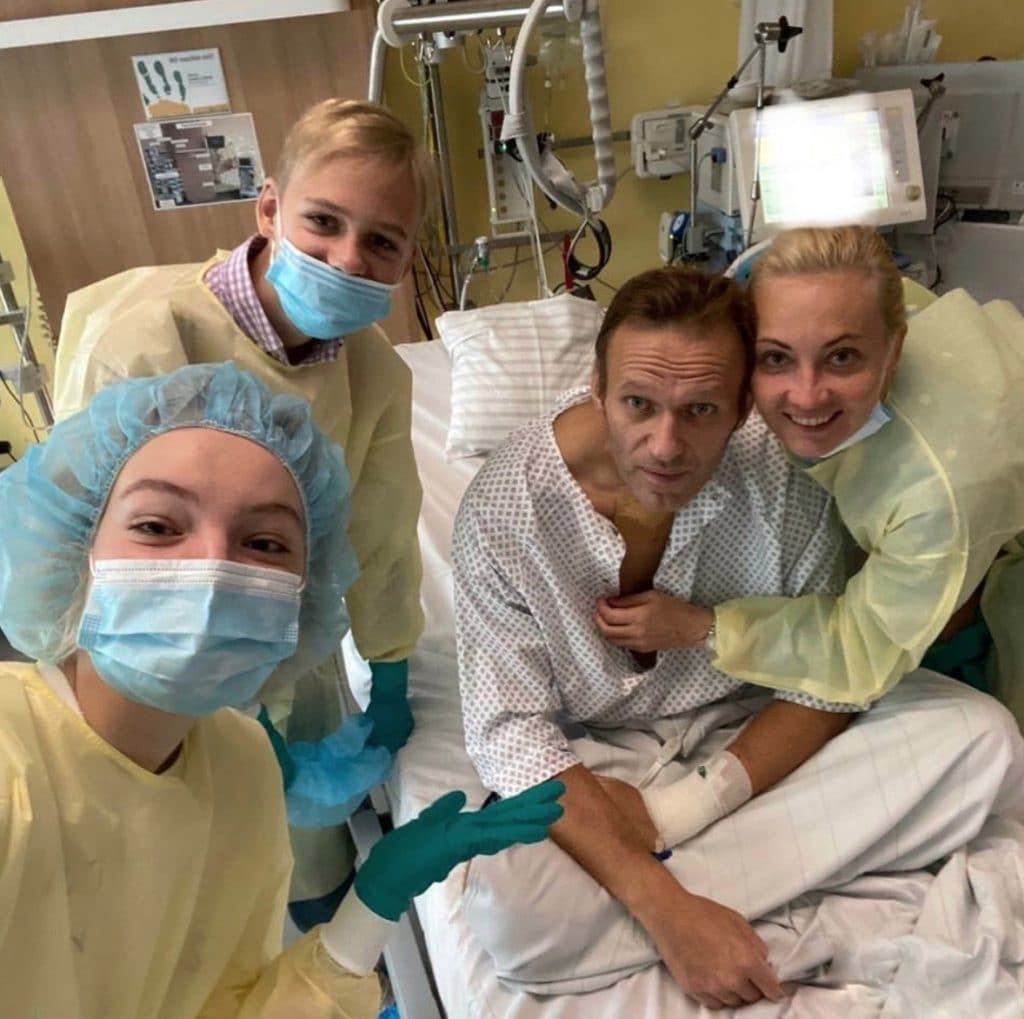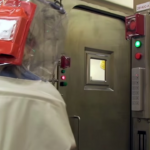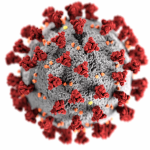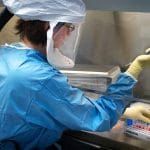Putin critic Alexei Nevalny, who once survived a chemical weapons attack, dies in a Russian prison
By Matt Field | February 16, 2024
 A photo shared on Russian opposition leader Alexey Navalny's instagram account shows Alexey Navalny on a hospital bed surrounded by his wife and two children as his treatment continues at Charite Hospital in Berlin, Germany on September 15, 2020. Navalny was poisoned, German doctors from a clinic where he is being treated announced. (Photo by Alexey Navalny Instagram Account /Handout/Anadolu Agency via Getty Images)
A photo shared on Russian opposition leader Alexey Navalny's instagram account shows Alexey Navalny on a hospital bed surrounded by his wife and two children as his treatment continues at Charite Hospital in Berlin, Germany on September 15, 2020. Navalny was poisoned, German doctors from a clinic where he is being treated announced. (Photo by Alexey Navalny Instagram Account /Handout/Anadolu Agency via Getty Images)
Russian political dissident Alexei Navalny, who survived an assassination attempt with a chemical nerve agent in 2020 before being jailed, died in an arctic prison colony Friday, becoming the latest opponent of Russian President Vladimir Putin to meet his death under mysterious circumstances. Just a day earlier Navalny had appeared on video, smiling and joking.
Two years into Russia’s war on neighboring Ukraine—a conflict that has raised concerns about the fraying norms around nuclear, chemical, and biological weapons—Navalny’s death further ratcheted up tension between the West and Russia. “I met Navalny here in Berlin when he was trying to recover from the poisoning attack in Germany and also talked to him about the great courage it takes to return to the country,” German Chancellor Olaf Scholz told Reuters, adding, “he has probably now paid for this courage with his life.” US President Joe Biden said Putin was responsible for the death and called him a “thug” in response to the news.
Navalny returned to Russia after recovering from the chemical attack—widely considered as having been conducted by Russian agents—in Germany in 2020. Three successive convictions on apparently spurious charges left him facing years behind bars, where he believed he would remain for the rest of his life, according to the Associated Press. As an opposition politician and a blogger, Navalny regularly prodded Putin, running political campaigns and producing content purportedly illuminating the Russian president’s ill-gotten gain. Through his efforts he won significant popular support; the chemical attack occurred as he was traveling from a political meeting in Siberia. His supporters say the charges that sent him to prisons were politically motivated, and US Secretary of State Antony Blinken echoed those assertions, saying of Navalny, “His death in a Russian prison and the fixation and fear of one man only underscores the weakness and rot at the heart of the system that Putin has built.”
By the time Navalny was poisoned in 2020, the members of the Chemical Weapons Convention, the international treaty banning chemical weapons, had already added the class of chemical apparently used in the assassination attempt, Novichok, to a list of proscribed chemicals in 2019. The substances were categorized as having little to no industrial or commercial value and to be useful only as weapons. That shift happened after Russian agents allegedly tried to poison a former Russian spy in Salisbury, England, in 2018 with Novichok. The former agent, Sergei Skripal, and his daughter survived after being found unconscious on a bench. A British woman, Dawn Sturgess, died after spraying herself with perfume that her boyfriend had found that contained the Novichok poison used in the alleged assassination plot.
With Navalny in a Berlin hospital, the German government requested that the Organization for the Prohibition of Chemical Weapons, the administrative body behind the Chemical Weapons Convention, send a team to investigate the poisoning. The organization’s labs concluded that Navalny had been exposed to a chemical structurally similar to the banned Novichoks. Putin has denied that his government had poisoned the activist. The Kremlin said Navalny’s death is being investigated.
The Navalny poisoning has been taken as one of many examples of Putin’s efforts to erode norms around weapons of mass destruction. Since the Russian invasion of Ukraine, Putin and other government officials have repeatedly alluded to nuclear attacks and claimed, falsely, that that the United States and Ukraine were developing biological weapons. “Navalny’s poisoning with a closely related Novichok agent less than a year after those changes were implemented was a vivid reminder that Russia remains in gross violation of the [Chemical Weapons Convention] and Putin’s willingness to brazenly flout international norms,” Gregory Koblentz, a professor of biodefense at George Mason University’s Schar School of Policy and Government who has followed the Navalny case, said.
Novichoks were developed in the 1980s and ’90s in the Soviet Union. Sometimes described as more dangerous than the deadly chemical weapons VX or sarin, Novichoks are neurotoxins that can stop the heart and damage other organ systems. The word has been translated as “newcomer.” In the end, Navalny died where political dissidents in Russia have long met their ends—in a frozen prison. Russia’s prison service claimed that “all necessary measures” were taken when Navalny fell unconscious after a walk.
Together, we make the world safer.
The Bulletin elevates expert voices above the noise. But as an independent nonprofit organization, our operations depend on the support of readers like you. Help us continue to deliver quality journalism that holds leaders accountable. Your support of our work at any level is important. In return, we promise our coverage will be understandable, influential, vigilant, solution-oriented, and fair-minded. Together we can make a difference.
Keywords: Alexei Navalny, Vladimir Putin
Topics: Biosecurity















The US president should have reacted to the violation of the Chemical Weapons Convention back in 2020, as there is a law existing exactly for such occasions.
Unfortunately, the world refuses to comprehend Putin is a new Hitler… Spread the word please, before it is too late.
Navalny was an extraordinary politican and very sincere and brave man. With his death, the future of Russia seems grimmer than ever before, so does ours too.
There is no evidence that Alexi Navalny was even subjected a chemical attack—whether or not “widely considered as having been conducted by Russian agents”—or assassination attempt, which you refer to as fact in practically every paragraph of this article. Were you taught at Northwestern University that journalists have no responsibility to verify what they report as fact? And, by the way, statements from the Washington Post or snide remarks from the President of the United States are not plausible sources of verification; they constitute no evidence. And neither does your uncorroborated sentiment—even were it perchance correct—that Navalny was a hero… Read more »